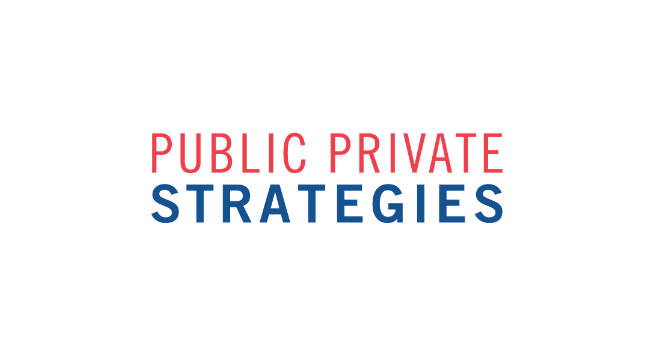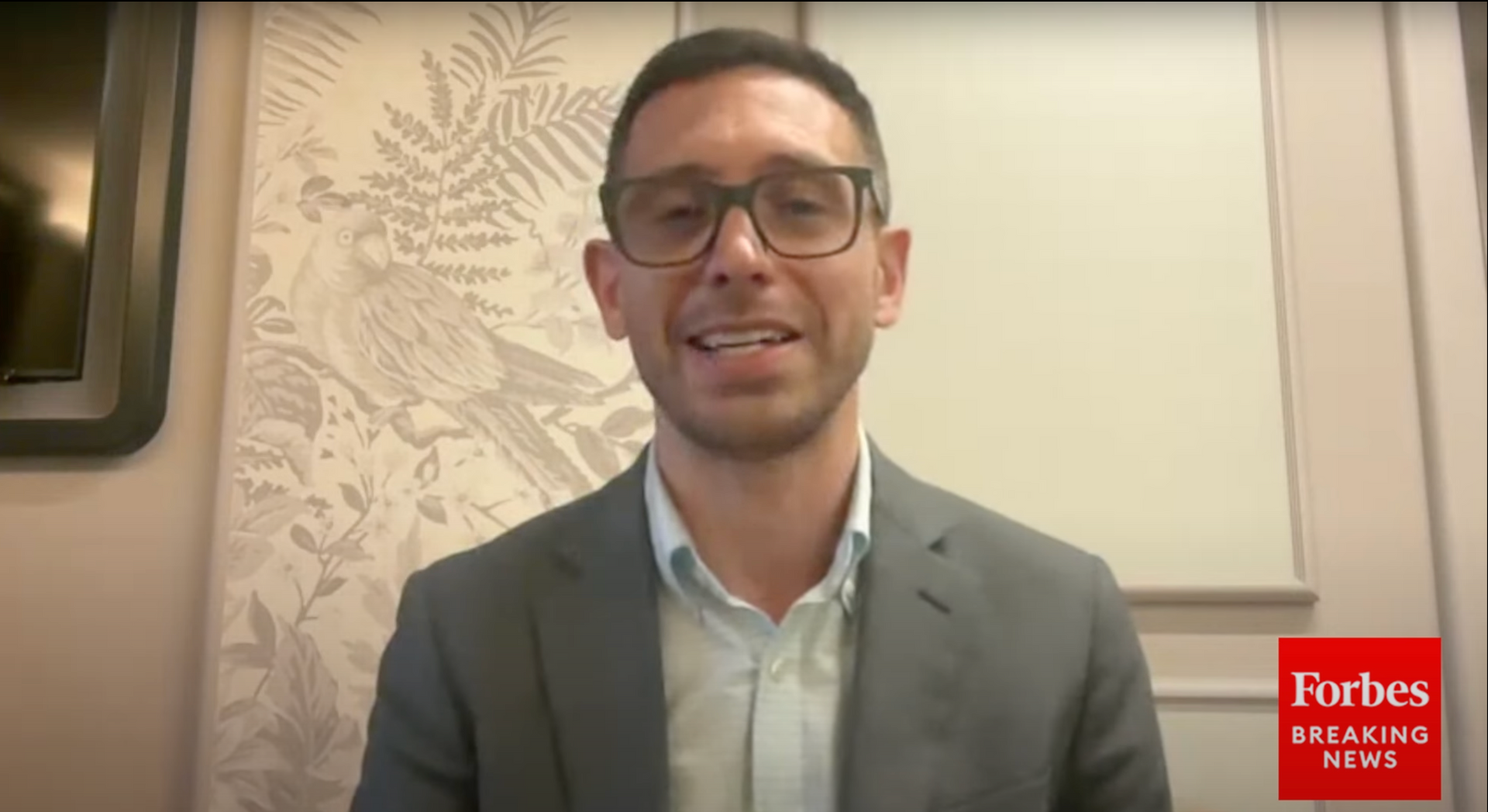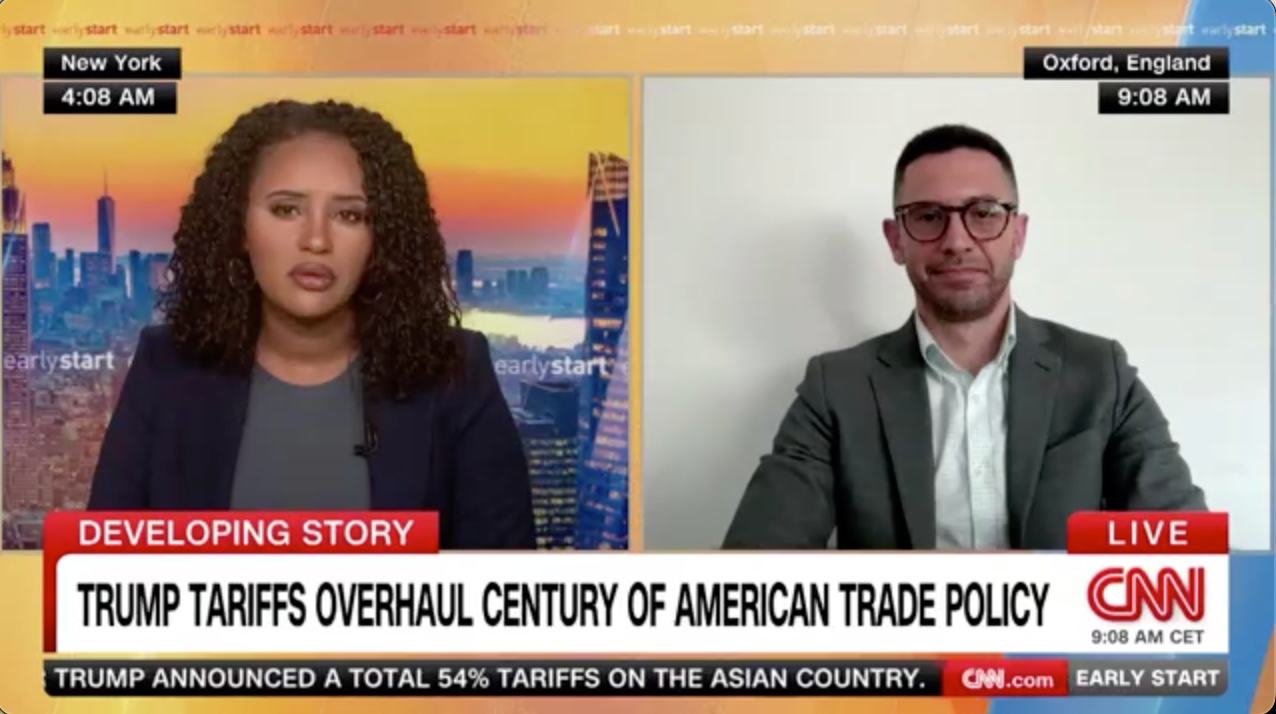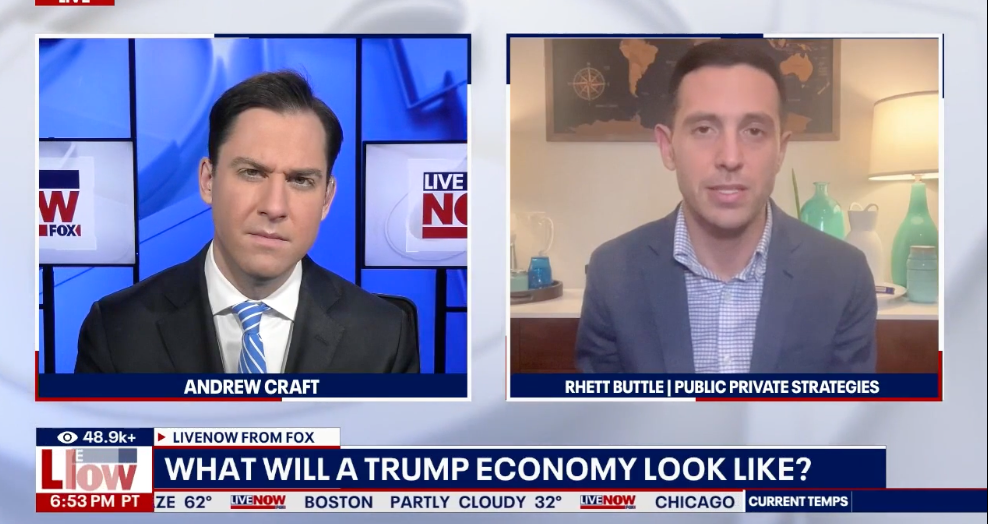
*This article was written by Scripps News Staff. President Joe Biden announced that the government will cover 100% of Hurricane Helene cleanup costs for the next several months to pay for the urgent work to clear the mud, remove downed trees and provide temporary housing. The federal support comes as residents in multiple Southeastern states are still struggling to return to normal following last week’s storm that killed over 200 people. Katie Vlietstra Wonnenberg, a small business advocate and political strategist, said it is going to take a significant amount of time to finish the cleanup, no matter how hard the federal government works. Read the entire piece on Scripps News.

WASHINGTON, D.C. – This month marks the anniversary of two pivotal pieces of legislation that are helping fuel a small business boom, the CHIPS & Science Act and the Inflation Reduction Act. Over the past four years, there has been a historic growth of American entrepreneurship across the country, with over 18 million new business applications filed, each one an act of hope and optimism in our economic future. This small business boom is fueled by investments like the Inflation Reduction Act and the CHIPS & Science Act. Rhett Buttle, Founder and CEO of Public Private Strategies, released the following statement: “As we mark the two-year anniversaries of the CHIPS & Science Act and the Inflation Reduction Act, the positive impact across the business landscape, and particularly for entrepreneurs, is unmistakable. The CHIPS & Science Act is fueling entrepreneurship opportunities by dedicating over $50 million to help develop new ideas and technologies to strengthen domestic semiconductor production and supply chain. “The Inflation Reduction Act has helped lower costs for workers and consumers, driving up demand for small businesses across the country. The healthcare provisions of the Inflation Reduction Act alone are saving millions Americans an average of $800 per year on health insurance premiums. These investments have helped fuel America’s small business boom, including a record 18 million new small business applications filed over the past four years. “We have more work to do to address the issues that business owners have consistently said are their top priorities, from lowering health care and prescription drug costs to expanding and streamlining contracting opportunities for small employers to strengthening and protecting American democracy . We remained committed to working with business leaders to address these challenges and ensure these investments are implemented effectively to grow economies and support communities all across the country.” ### About Rhett Buttle Founder & CEO, Public Private Strategies President, Public Private Strategies Institute Senior Fellow, The Aspen Institute Rhett Buttle is an entrepreneur, advocate, and one of the most trusted leaders at the intersection of business and policy in Washington, DC. He has worked for President Biden, Vice President Harris, President Barack Obama, Secretary of State Hillary Clinton, and Governor Arnold Schwarzenegger in government and campaign roles. Rhett is the founder of Public Private Strategies (PPS) and President of the Public Private Strategies Institute (PPSI), which works to bring together the public and private sectors to build coalitions, activate campaigns, and create strategic partnerships to drive policy and market outcomes. In these roles, he advises leading policy makers, foundations, nonprofits, and corporations. In addition to PPS and PPSI, he has helped found the Small Business Roundtable, Small Business for America’s Future, and the Next Gen Chamber of Commerce. He is also a Senior Fellow at the Aspen Institute and a regular contributor to Forbes, where he writes on the intersection of business, policy, and politics. Rhett has also been featured in The New York Times, CNN, The Wall Street Journal, and several other business publications. About Public Private Strategies Public Private Strategies (PPS) creates opportunities where the public and private sectors meet. We bring together diverse allies including foundations, associations, corporations, small businesses, and entrepreneurs to solve pressing societal challenges. By harnessing the power of the private sector, we build coalitions, activate campaigns, and create strategic partnerships to drive desired policy and market outcomes. Learn more at www.publicprivatestrategies.com .

WASHINGTON, D.C. – This month marks the anniversary of two pivotal pieces of legislation that are helping fuel a small business boom, the CHIPS & Science Act and the Inflation Reduction Act. Over the past four years, there has been a historic growth of American entrepreneurship across the country, with over 18 million new business applications filed, each one an act of hope and optimism in our economic future. This small business boom is fueled by investments like the Inflation Reduction Act and the CHIPS & Science Act. Rhett Buttle, Founder and CEO of Public Private Strategies, released the following statement: “As we mark the two-year anniversaries of the CHIPS & Science Act and the Inflation Reduction Act, the positive impact across the business landscape, and particularly for entrepreneurs, is unmistakable. The CHIPS & Science Act is fueling entrepreneurship opportunities by dedicating over $50 million to help develop new ideas and technologies to strengthen domestic semiconductor production and supply chain. “The Inflation Reduction Act has helped lower costs for workers and consumers, driving up demand for small businesses across the country. The healthcare provisions of the Inflation Reduction Act alone are saving millions Americans an average of $800 per year on health insurance premiums. These investments have helped fuel America’s small business boom, including a record 18 million new small business applications filed over the past four years. “We have more work to do to address the issues that business owners have consistently said are their top priorities, from lowering health care and prescription drug costs to expanding and streamlining contracting opportunities for small employers to strengthening and protecting American democracy . We remained committed to working with business leaders to address these challenges and ensure these investments are implemented effectively to grow economies and support communities all across the country.” ### About Rhett Buttle Founder & CEO, Public Private Strategies President, Public Private Strategies Institute Senior Fellow, The Aspen Institute Rhett Buttle is an entrepreneur, advocate, and one of the most trusted leaders at the intersection of business and policy in Washington, DC. He has worked for President Biden, Vice President Harris, President Barack Obama, Secretary of State Hillary Clinton, and Governor Arnold Schwarzenegger in government and campaign roles. Rhett is the founder of Public Private Strategies (PPS) and President of the Public Private Strategies Institute (PPSI), which works to bring together the public and private sectors to build coalitions, activate campaigns, and create strategic partnerships to drive policy and market outcomes. In these roles, he advises leading policy makers, foundations, nonprofits, and corporations. In addition to PPS and PPSI, he has helped found the Small Business Roundtable, Small Business for America’s Future, and the Next Gen Chamber of Commerce. He is also a Senior Fellow at the Aspen Institute and a regular contributor to Forbes, where he writes on the intersection of business, policy, and politics. Rhett has also been featured in The New York Times, CNN, The Wall Street Journal, and several other business publications. About Public Private Strategies Public Private Strategies (PPS) creates opportunities where the public and private sectors meet. We bring together diverse allies including foundations, associations, corporations, small businesses, and entrepreneurs to solve pressing societal challenges. By harnessing the power of the private sector, we build coalitions, activate campaigns, and create strategic partnerships to drive desired policy and market outcomes. Learn more at www.publicprivatestrategies.com .





